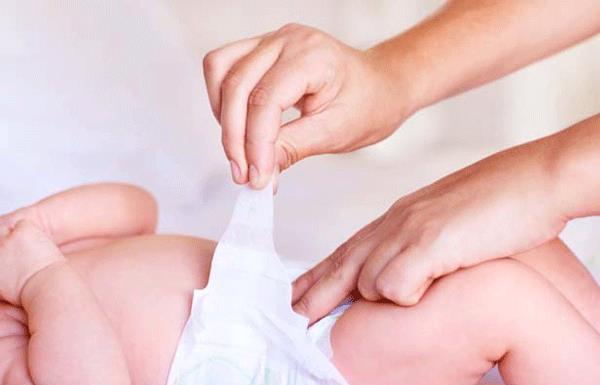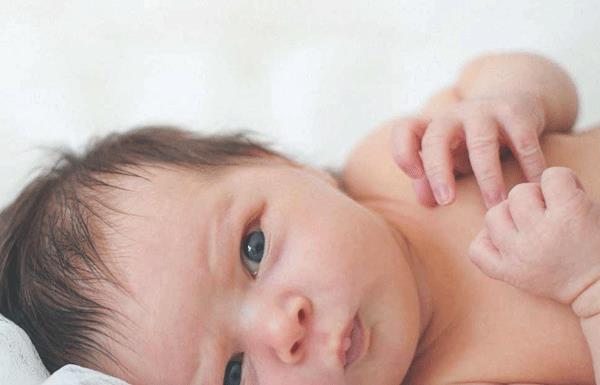What's so special about a normal baby's day? It was a day with eating, sleeping, changing diapers, crying and playing, at the right rhythm of development that mom was trying to learn.
content
Food story
Diaper change story
Baby crying story
Baby sleep story
Baby play story
The first days and weeks of life with a parent with a baby can be full of joy. But along with that is a series of questions about changing diapers, breastfeeding, bedtime ...
When knowing the schedule of your baby's activities, parents will know how to take care of and adjust time for themselves. We know every child is different, but from sleep to eating, there are a few general principles as follows:
Food story
Each newborn baby's meal is 1-3 hours apart. Naturally, feeding your baby will depend on whether you are breastfeeding or formula. Breastfed babies often eat more often than formula because breastmilk digests faster.

Every 2-3 hours babies will ask for food, day and night
There are many ways a child can say to their mother, "I'm hungry". This could be the movement of sucking the hand, placing the hand or bringing the finger to the mouth. Or you may notice that your baby is tilting his head to the nipple and opening his mouth if she gently strokes her cheek. Babies cry when hungry, but that is the last sign before "angry".
Try to burp your baby during and after a feed by holding the baby's face up against his shoulder and patting it. If your baby stops eating and sleeping or turns his head away from the nipple, these are signs that he or she is full.
Diaper change story
Newborns change a minimum of 6 or more diapers in the first weeks of life. Also at this time the infant's stools look dark blue or black. This is called meconium, which fills a baby's intestines before they are born.
After that, your baby's digestive system will become soft and shaky. If your baby is breastfed the stool will be pale yellow. If your baby eats formula, the stools will be harder and brown or yellow.

Through the color of feces, parents will guess the health situation of the child
After a few weeks, going to the bathroom will become more organized. Breastfed babies can walk for a week with just one bowel movement, while formula-fed babies should go at least once a day.
Baby crying story
Crying is the primary way babies communicate, especially during their first few days. The cry can be difficult to decipher, but you can think about your schedule or your surroundings to find out why.
If it's been 2 hours since your baby last ate, the most obvious reason is that the baby is hungry. If your baby wakes up after 1.5, the diaper is probably wet! Babies can also sometimes feel bored or over stimulated.

Crying is your baby's way of reporting wet, hungry or uncomfortable diapers
If you ignore all the above reasons, you can comfort your baby with a few tips:
Wrap the baby tightly in a thin shield, making it feel like the baby is being wrapped in the uterus.
Hold your baby to your chest and gently pat your baby's back.
Move your baby to a quiet place and play soft music like white noise .
A pacifier can also be effective.
Baby sleep story
Babies often feel sleepy 1-2 hours after waking up. The first few weeks, babies will sleep about 16 hours a day, usually lasting from 2 to 4 hours, any time of the day or night. Many babies will sleep while eating or sucking their hands. This is fine.
Yawning, drooping eyelids, looking away, crying, and rubbing the eyes are all signs of a sleepy baby. Always lay your baby on his or her back when sleeping, on a stable surface, in a crib or mattress with a support bar.
At the end of the first month, babies begin to sleep for a longer period of time. But it will take a few more months before your child enters a predictable schedule in the morning, early afternoon, naps and a longer night's nap.
Baby play story
Amid all the changes in eating, sleeping, and diapers, infants have short periods of alertness to play. This is a great time for parents to talk to their baby. Baby is gradually getting used to the voices and images of parents' faces.

Children do not need toys in the first few weeks, and mothers to talk are enough!
Smiling, singing, telling stories and talking with your baby are the best ways to get used to. Gently rock your baby with music, make a smiley face for your baby to imitate. At this age, children do not need toys.

Postpartum care as soon as possible, mother healthier! Postpartum care is very important, especially right after birth. However, do you know all the priorities that need to be done?
An infant is basically a "pure white" angel that has just come to her mother. Every baby's reflexes are natural, so parents have to be patient so that babies get used to the new life and familiar with the schedule they want.
















